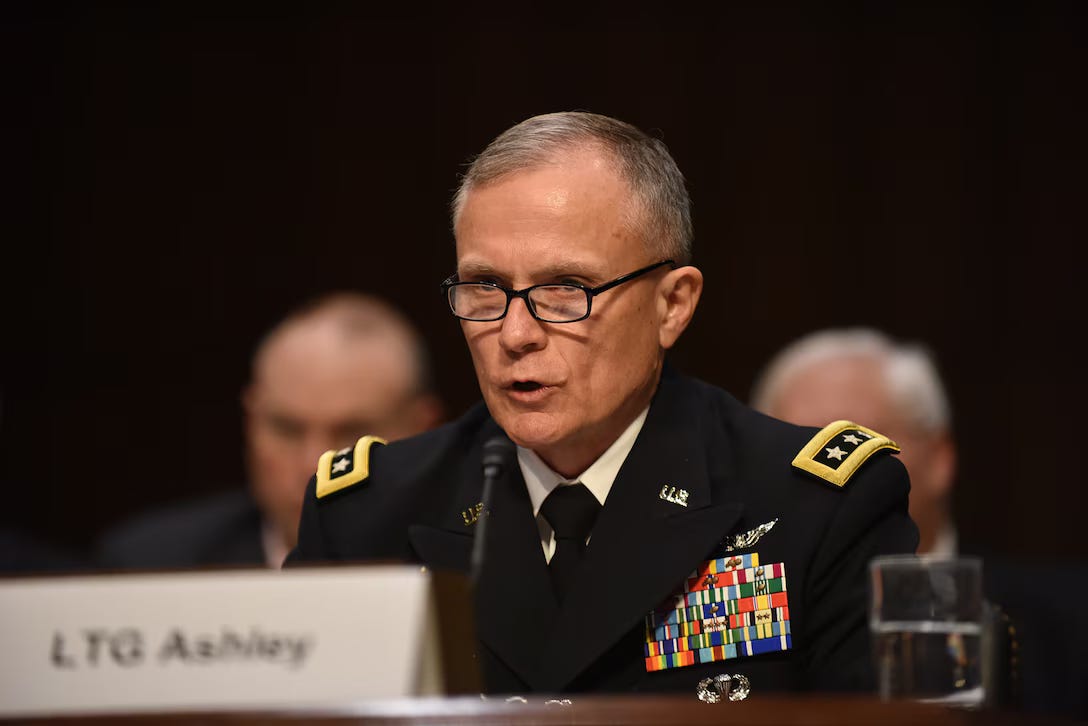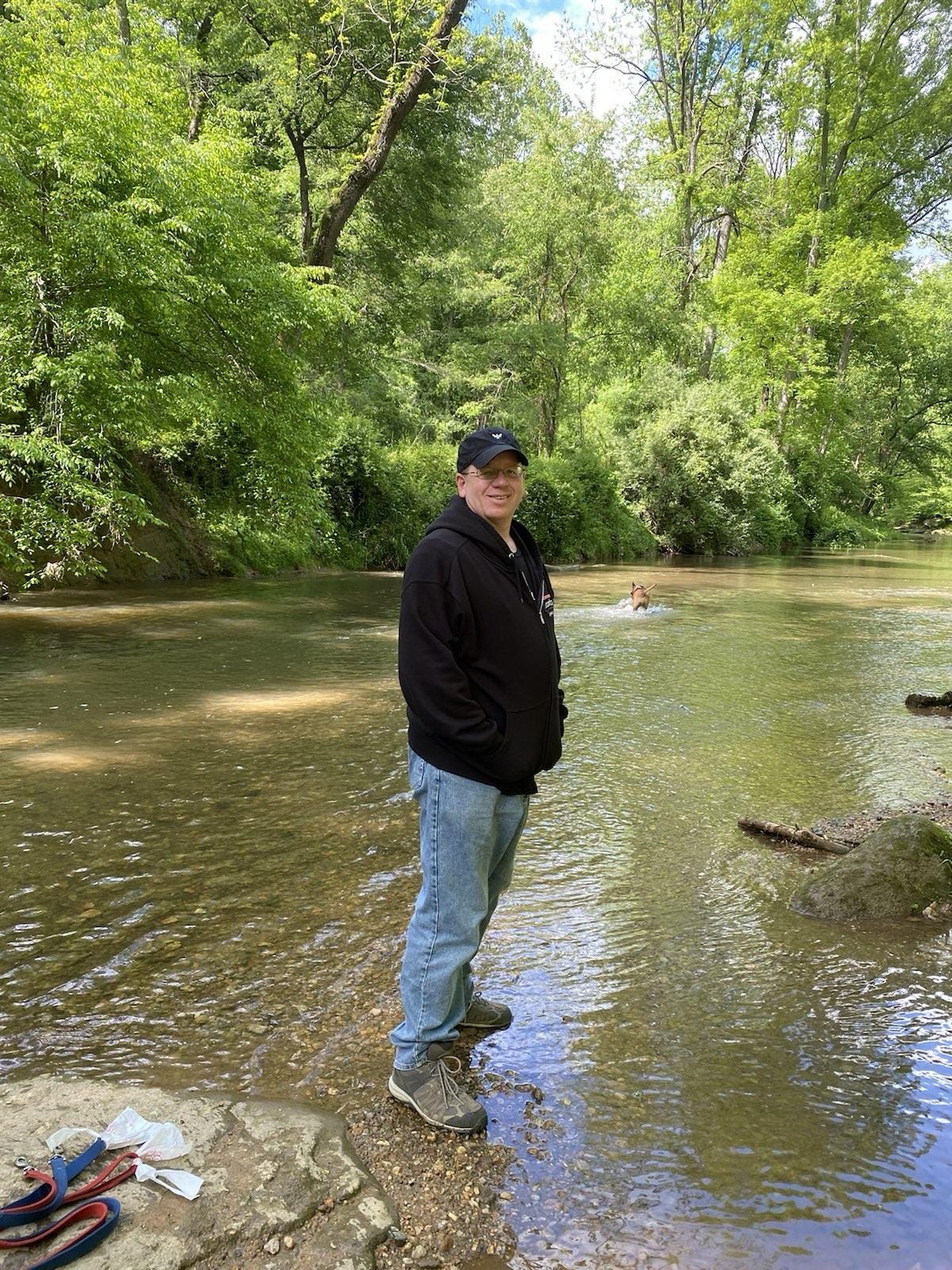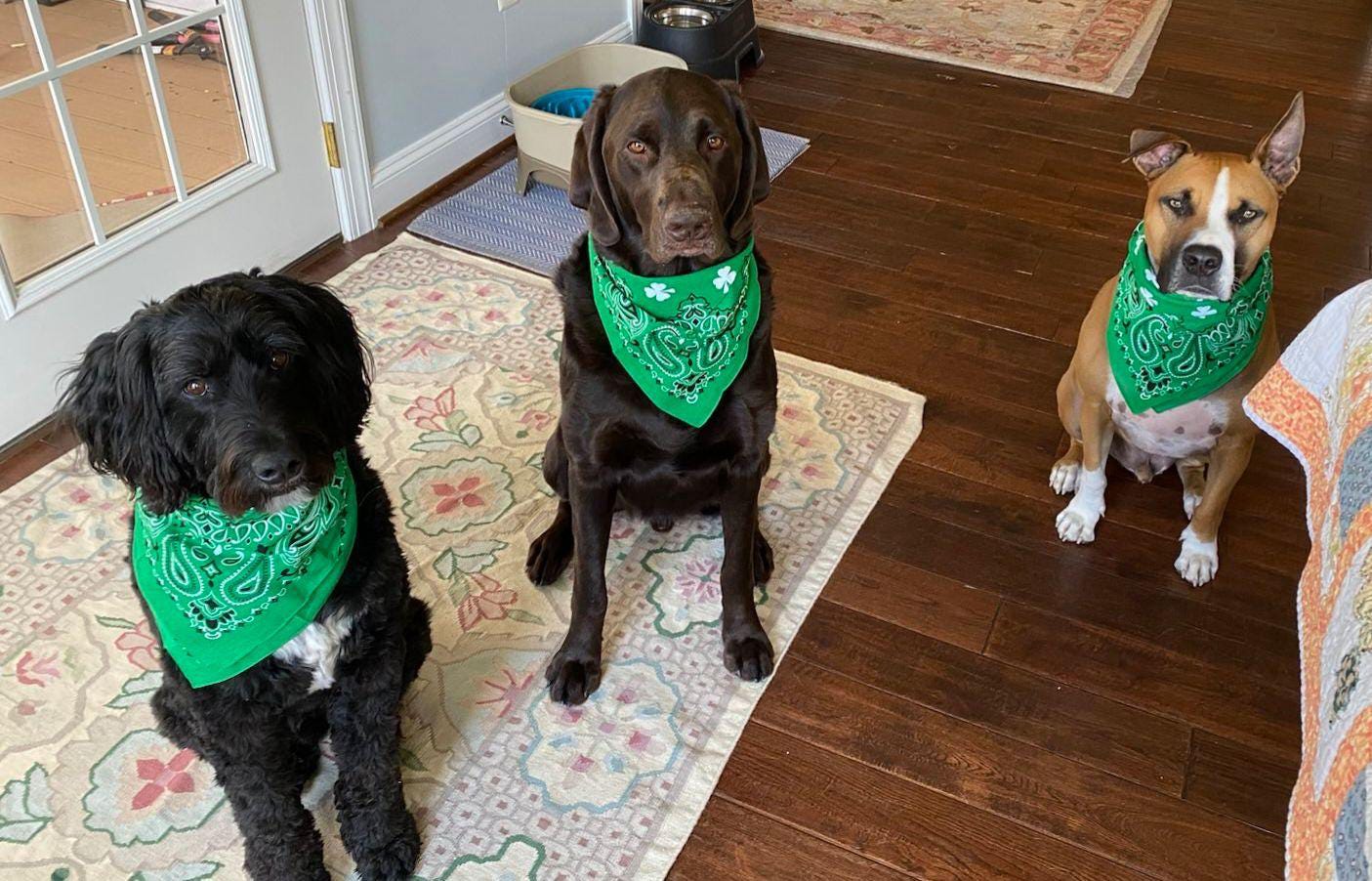It was my first interview with the former director of the Defense Intelligence Agency. Ret. Lt. Gen. Robert Ashley and I were about an hour and ten minutes in -- a staggering amount of time for someone who might not have given me any. I had asked all the questions on my list, and I could have asked more, but it seemed right to just let the conversation meander.
And all these years later, there is one moment I return to over and over again -- especially this month, Mental Health Awareness month. He described a moment when he had recently come back from a year in Iraq and Afghanistan. He was on a walk at the U.S. Army War College when he saw a guy on the football field riding a John Deere. “I'm looking at this guy thinking, I bet he doesn't have a care in the world, just mowing the grass. What a great job.”
Of course that man very likely had his own burdens. But I was struck by how one of the most senior intelligence officials in the most powerful nation on earth had just confessed that he envied a guy who cut grass. “It concerns me, the level of what I know about what’s going on in the world that so many people are oblivious to,” he went on to say.
That sentiment has continued to resurface with other sources. If you get past the glitz in spy movies, the chic outfits and hot women and exotic cities that no one seems to mind blowing up, it turns out that most real intelligence officers have some internal, intangible weight. They made a silent agreement to carry it the rest of their lives. They will grow old, silently holding it, as they watch their grandchildren play… as Bob told me in his own way that day.
Our interview was part of what led to me to making a groundbreaking report on mental health struggles in the intelligence community in 2022. The CIA’s Director of Medical Services, a woman named Victoria (her last name withheld for security reasons), told me that the agency now prepares officers for stressors before they deploy to warzones or hardship locations. She said mental health professionals embed alongside officers. “When they go overseas or they're going out to a location, they understand that it's going to be stressful,” Victoria said. “But what they don't anticipate is it's stressful coming back.”
Somehow that brought me to Jake Williams this month, because years ago he had told me that he too wished he didn’t know the things he does. “I tried the day I walked out the door to be like, ‘That chapter in my life is closed. Don't think about that chapter of your life.’”
He wasn’t abroad, he was “on board,” as he calls it. Jake was in an elite NSA hacking unit called Tailored Access Operations. Every keystroke connoted danger, he tells me. “If [the adversaries] compromise your toolset, then that is signatured and it's signatured everywhere that tool is in use.” He compared it to being an Army commander “rolling an M1 Abrams into combat. He loses the first M1. And every M1 in our arsenal explodes simultaneously.”
There was a time when he used to believe that he would feel sad to leave the intelligence community, and its access to highly classified information on Intelink. But he says he was in “too many” SAPs, or highly classified Special Access Programs. He saw what hostage-takers and bomb-builders did in their spare time. He saw the capabilities of U.S. adversaries, as well as U.S. vulnerabilities.
He still speaks to a few former colleagues, but much is left unsaid. “It's not like there's a big group of us that get together and tell war stories because you can't,” he says. “I mean, even though you were all cleared at that level before, you aren't now. You're not in a SCIF [Sensitive Compartmented Information Facility] and you can't go and just shoot the bull about the old times.”
Jake left the NSA in 2013, around the time that Edward Snowden’s massive leaks were testing Americans’ trust in their country. Then in 2017, he was outed by the Shadow Brokers -- a group of hackers behind a devastating NSA attack, and widely thought to be Russian intelligence but never publicly attributed. (“I think everybody would prefer that we forget about it,” Jake tells me.) Suddenly strangers were recognizing him in the streets of Augusta, Georgia, asking him if he had hacked them. “I got that question more times than I can count,” Jake says.
Fearing a potential incident, he and his ex-wife made an agreement that he wouldn’t see his 11-year-old daughter for about six weeks. “‘Hey, you know, I'm traveling a lot,’” he said he told her. “But even when I'm home, I'm going to be away for a little bit.’”
Jake still won’t make plane connections through certain locations, like Hong Kong, fearing their allegiances to countries that he once digitally infiltrated. And despite therapy, he still has triggers -- some digital forensics work might remind him of a counterterrorism mission, or a lawmaker on TV may make a claim that he knows is not true because of his old job.
We don’t talk about a guy mowing the lawn. For Jake, it’s his dogs. “I take joy in their innocence,” he says.





